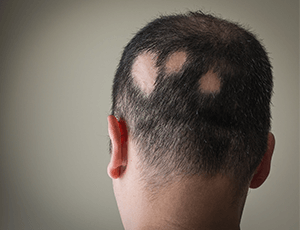What is Trichology
Trichology is the study of the structure and conditions of the hair and scalp. It began as a division of dermatology in the early part of the 20th century, and has gradually developed into an important discipline of its own.
Treating Diseases of the Hair and Scalp
In the UK, it’s estimated that over half the population, men and women, will experience hair loss in their lives. Female and male pattern hair loss, alopecia areata and chronic telegenic effluvium are common complaints. There is also a well-recorded increase in allergic reactions affecting the scalp and skin, often following exposure to chemicals in cosmetic products or those we unavoidably encounter in daily life.
With this background it’s easy to see why trichology is becoming an increasingly important discipline, and why trichologists are sought after by the public for trusted advice and treatments.


What Can Trichologists Do?
In their training, trichologists study the structure of the hair and skin. They also study the body’s chemistry, and its cardiovascular, nervous, endocrine and immune systems.
This means they have a full understanding of the impact disease, diet, lifestyle and the chemicals we encounter in our lives can have on our hair and scalp.
Most importantly, they can recognise the many conditions that affect the hair and scalp, the underlying causes of those conditions and how they can be put right.
Trichologists and Healthcare
Trichologists work in partnership with a network of healthcare professionals with expertise in hair and scalp problems, such as GPs, pharmacists, dermatologists and hair surgeons.
Becuase they know who to refer their clients to, and when it’s appropriate to do so, trichologists can ensure clients receive comprehensive advice on their condition and access to the full range of treatments available.
